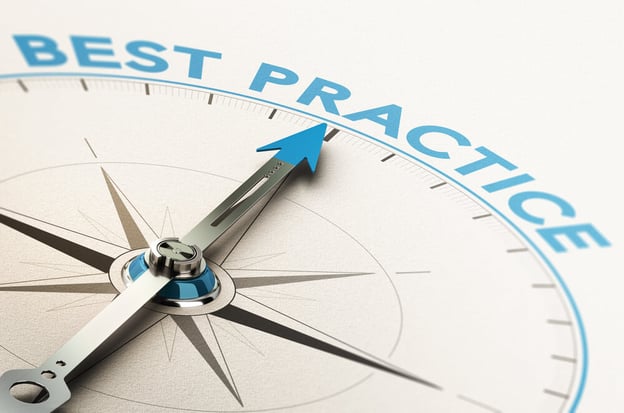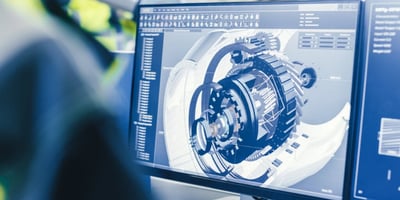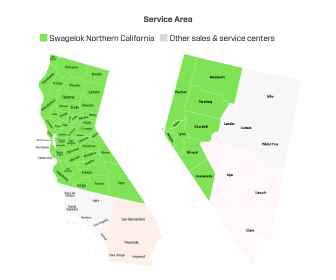Improving Rotating Equipment Reliability: Best Practices for the Petrochem Industry
by Paul Lesnau, on 4/21/20 8:45 AM
Any industry that depends on motors to drive production is concerned with rotating equipment reliability. It’s all the more critical in petrochemical plants that operate 24/7/365 and depend on hundreds to thousands of pumps. Unplanned downtime caused by pump failures or leakage, however brief, has an immediate impact on costs for the reprioritization of maintenance schedules and resources, possible overtime, replacement of expensive parts, and disrupted production schedules. Perhaps most importantly, is the potential for negative Health, Safety, and Environment (HSE) impacts due to fires caused by leaks.
Rotating equipment engineers are well aware of the extensive studies regarding failure modes for pumps, including lubrication and bearings, vibrations, running beyond best efficiency point (BEP), running dry, and seal failures. Each mode merits its own set of best practices to improve reliability. In my experience working with reliability engineers in California Bay Area petrochemical plants, I’ve found that pump seal failures are a critical focus so I’ll highlight several best practices for you to reduce rotating equipment failure types.
Improve Rotating Equipment Reliability With Newer Materials and Designs
Seal technologies continue to advance, developing new materials and designs better suited to the variety and demands of petrochemical processes. The API 682 Standard provides extensive details and practical guidance regarding seal support system plans, configurations, and available options based on proven solutions for common refinery sealing applications. Reliability engineers should take advantage of these improvements by following these best practices.
#1 Make Sure Seals And Seal Support Systems Meet Current Process Requirements
Pump seals and and seal support systems installed to meet process requirements years ago may no longer be efficiently—or adequately—meeting those needs. Changes in crude supply, like a turn toward more sour crude, may be taking more of a toll on pumps, seals, and piping. Environmental regulations in the Bay Area have tightened considerably, requiring greater control over fugitive emissions. If you’re experiencing a gradual increase in problems associated with pump leakage, consider these questions regarding currently-installed seals and seal support systems:
⇒ Are mechanical seals suitable for the process or could newer, more resilient seal face materials and designs reduce the chance of leakage?
⇒ Could seal leakage have been prevented with better instrumentation like temperature, pressure, and flow gauges that provide early warning of potential mechanical seal degradation or seal support system problems?
⇒ Do seal support systems consistently provide the required flush or barrier/ buffer fluids at the proper temperature, pressure, and flow to maintain the optimum seal chamber environment?
⇒ Would a different seal support system plan improve pump reliability by providing more efficient cooling, eliminating damaging particulates, or delivering flush or barrier/buffer fluids that provide better seal face lubrication?
Today’s seals and seal support systems offer many more options to specifically match to petrochemical process needs, improve pump reliability, and reduce the incidence of unplanned downtime.
#2 Reduce Time Spent on Planned Maintenance
A data-driven reliability-centered maintenance schedule, based on installation date and repair records, will always be a component of any reliability program. Well-designed seal support systems facilitate greater maintenance efficiency, enabling reliability engineers to spend less time on actual maintenance activities in the following ways:
- Ergonometric plan designs make access, instrument readings, and maintenance procedures such as venting, draining, and strainer replacements as efficient as possible.
- Early warning instrumentation to identify potential problems and help reliability engineers diagnose underlying causes of inadequate fluid pressure or excessive seal chamber temperature.
- Customized plans to meet existing infrastructure limitations or incorporate optional components to reduce time spent on planned maintenance.
Optimally-designed seal support systems not only improve rotating equipment reliability, but they also facilitate greater efficiency in carrying out planned maintenance procedures.
#3 Work With Local Vendors Who Have Proven Petrochemical Experience
When 24/7/365 petrochemical operations need technical support or spare parts, any delays equate to added costs and lost productivity. As a best practice, your seal support system vendor should be local—as easily accessible by phone as by delivery vehicle. With years of industry experience in the Bay Area to guide you in the selection, your systems will also be designed, assembled, and tested locally. In the event you need spares, they’re readily available, a key factor contributing to improving rotating equipment reliability of your plant.
Local Rotating Equipment Challenges Require Local Solutions
Despite the current, unforeseen challenges facing the Northern California petrochemical industry and the distinct possibility of reduced budgets, investments made now to improve rotating equipment reliability can deliver long-term benefits. Improvements in seal and seal support systems technology offer solutions more closely matched to the changing processing needs and result in reduced unplanned downtime and greater efficiency in planned maintenance procedures.
With the guidance of a local, experienced seal support solution vendor, you can take advantage of these improvements and make them an integral part of your rotating equipment reliability best practices.
To find out more about how Swagelok Northern California can help petrochemical plants improve rotating equipment reliability through expert consultation, design, and assembly of customized seal support systems, contact our team today by calling 510-933-6200.
 About Paul Lesnau | Sales Manager, Business Development Manager, and Field Engineer
About Paul Lesnau | Sales Manager, Business Development Manager, and Field Engineer
Paul holds a B.S. in Mechanical Engineering from North Dakota State University. Before joining Swagelok Northern California, he was the West Coast Regional Sales Manager for an organization based in Illinois involved in pneumatic and hydraulic applications where he supervised product distribution throughout the western United States, Canada, and Mexico. While in this role, he was able to help provide technical and application-specific expertise to customers and distribution to drive specifications.



/Digital%20montage%20(1).jpg?width=1920&name=Digital%20montage%20(1).jpg)


